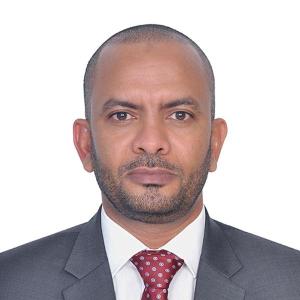Statement attributed to the United Nations Resident Coordinator and Humanitarian Coordinator for Syria ad interim, Mr Sudipto Mukerjee on missile attacks on residential areas in Damascus [EN/AR]
22 February 2024
I am gravely concerned about yesterday’s missile attacks on a residential building in Kafr Sousa neighbourhood in Damascus, less than 250 meters from the United Nations Refugee Agency (UNHCR) office
The attacks resulted in two deaths and one injury in addition to severe material damage in the largely residential area. An adjacent school was rendered inoperable. Students and teachers were reportedly found in extreme state of distress.
Only weeks into 2024, Damascus has been hit five times by airstrikes and missile attacks causing deaths and injuries and severely damaging civilian infrastructure. In January, an attack targeted the largely residential neighbourhood of western Mazzeh in Damascus in close proximity to several UN offices.
These attacks further complicate the situation in Syra, interrupt humanitarian activities, and disrupt humanitarian access. Civilians in Syria continue to suffer from damages inflicted on civilian infrastructure, further degrading their wellbeing and ability to access services.
I reiterate that international humanitarian law must be strictly respected at all times. International humanitarian law explicitly prohibits directing attacks against civilians and civilian objects. In addition, constant care must be taken, throughout any military operations, to spare civilians and civilian infrastructure.
-
UN Office for the Coordination of Humanitarian Affairs
-
To learn more about OCHA's activities, please visit https://www.unocha.org/

contributed to expanding the partnership between UNDP and the Kingdom of Saudi Arabia through joint projects on integrated water resources management, Statistics, energy, urban development, and public sector excellence. From Oct 2015 to June 2019, Dr. Mudawi led the UNDP’s largest and most successful Stabilization portfolio in Iraq with over one billion US dollars budget. The Stabilization program assisted more than 4 million internally displaced Iraqi to return to their areas of origin after restoring essential services in areas liberated from ISIL. The Stabilization Programme was funded by 27 donor countries led by the United States, Germany, United Arab Emirates, EU, and the Netherlands. Before that, Dr. Mudawi managed several Health projects and supported the resource mobilization efforts for the prevention and control of HIV/AIDS, Malaria, and Tuberculosis in Sudan (2006), Nepal (2007-2009), Somalia (2010), Yemen (2010), and Iraq (2011-2015). He served as Global Fund Technical Officer with the WHO East Mediterranean Regional Office from 2009 to 2011.
Dr. Mudawi successfully completed the UNDP corporate assessments for the DDR and RR roles in 2014 and 2018 respectively. He holds a master’s degree in public health (MPH) from Maastricht University, the Netherlands, and A bachelor’s degree in medicine and surgery from the University of Khartoum, Sudan.

